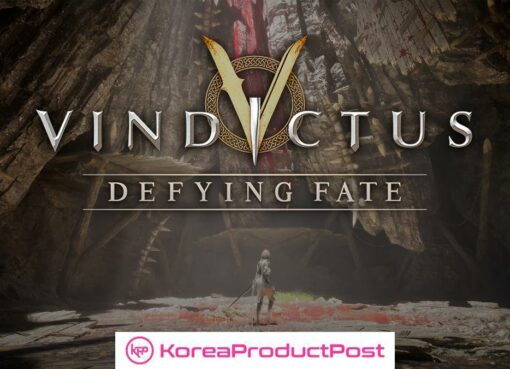You’ve seen and felt it. Hundreds of times. You fell in love with a game—hard—but once it lost the hype, they just disappeared. All those hours of grinding, building characters, and even massive spent you did were eventually wiped out, and poof—everything’s gone, vanished into thin air. And so, European gamers are now fighting back against gaming companies and developers with “Stop Killing Games” petition.
But what is this petition about, really? What’s behind it? And how will this impact Korean games and gaming developers/companies if they are eventually forced to comply and adapt? Join our extensive discussions below.
What is the “Stop Killing Games” Petition?
Imagine this: You’re fully immersed in your favorite online game. You’ve spent months or even years leveling up, collecting gear, building reputations, and forging friendships in a heartwarming community of an epic online world.
But then, one day, the servers shut down. Your game is no longer accessible, even though you legally purchased it. No warnings, no alternatives, just a black screen staring back at you. This is a sad reality for many gamers, especially those playing live-service or online-only games.
The “Stop Killing Games“ petition, with YouTuber Ross Scott of Accursed Farms at the spearhead, is a global effort to address the issue of game shutdowns and forced obsolescence. The petition, which has gained significant traction in Europe, demands that companies must preserve video games a playable state after publishers stop providing support—essentially, asking developers to allow players to continue enjoying their games, even if official servers are no longer running.

But how does this petition impact Korean games and developers? Let’s explore.
The Core of the “Stop Killing Games” Petition: What Gamers Want
At the heart of the “Stop Killing Games” petition is the call for legislation to preserve digital ownership. When players buy a physical game, they’re able to keep it and play it whenever they like, indefinitely.
Digital games, however, are often at the mercy of the servers that keep them alive. Once the servers are turned off, everything that was once accessible is gone. Now, “Stop Killing Games” petition demands two key changes:
Removal of Online-Only Requirements
Many online games require a constant internet connection. The petition argues that this is unfair, especially when games that were once playable offline suddenly turn unavailable.
Private Server Support
The petition advocates for players to be able to access private servers or offline modes once a game’s official support ends, ensuring that digital purchases remain playable, even after official servers go dark.
Now, please don’t get it wrong. “Stop Killing Games” petition is NOT about forcing developers to maintain servers indefinitely. Instead, it’s about empowering players to preserve their investments by enabling offline modes or private servers once the developers pull the plug.
Korean Games and Their Heavy Dependence on Live-Services
Korean gaming companies like NCSoft, Nexon, Netmarble, and KRAFTON are giants in the gaming world, famous for their live-service models and multiplayer online games.
Titles like Lineage, MapleStory, and Black Desert rely heavily on active server infrastructure. Therefore, once servers are turned off, these games become unplayable, a scenario that directly connects with the concerns raised by the petition.
Here’s the kicker: Many of these games are available with online-only models in mind, where the bulk of gameplay has very close ties to the presence of active servers. For instance, MapleStory offers players a massive world where interaction with other players is at the core of the experience. That is why the moment those servers are shut down, the game is effectively gone.
Now, could this new movement force companies like Nexon to change their stance and consider long-term game preservation? This now becomes the big question.
Could “Stop Killing Games” Petition Spark a Change for Korean Game Developers?
It’s hard to imagine major Korean companies switching gears entirely. However, the petition, along with its growing global momentum, might just change the landscape.
If the EU or UK pushes for preservation laws, South Korean companies—who are major exporters of online games—might be forced to adapt to the new regulations.
Now, let’s break down how this could impact the Korean gaming industry:
The Financial Cost of Preserving Games
First things first. You must know that developing games with permanent online modes or private server capabilities is expensive. That is why Korean companies often design games with live services as a revenue model, relying on microtransactions, seasonal content, and ongoing updates.
Now, making a game playable after its official support ends could mean extra development costs—one of the reasons some studios are reluctant to adopt preservation-focused measures.
Still, if the demand for digital ownership rises, preserving these titles could become a business opportunity rather than a cost, especially if it leads to stronger customer loyalty.
Pressure from Global Markets
Secondly, the global nature of gaming means that Korean games are often released across multiple regions. Therefore, if “Stop Killing Games” petition passes, European laws mandating game preservation could force Korean publishers to release versions of their games that support private servers or offline play.
This could be a major hurdle for companies that have historically focused on live-service business models, where shutting down a game’s server after a period is the norm.
Consumer Trust and Brand Loyalty
As gamers, we don’t just want to play a game for a few months; we want to invest in a world that we can return to at any time.
If Korean game developers choose to embrace preservation-friendly practices—for example, allowing for offline play or enabling private servers—they could create a longer-lasting relationship with their players.
This would build consumer trust, which could, in turn, lead to greater revenue over time.
The Future of Korean MMORPGs
Korean MMORPGs, which are largely reliant on server maintenance, might face a significant challenge. However, the growing trend toward single-player games, as seen with titles like Lies of P and Stellar Blade, could make the transition easier.
If more Korean developers shift to self-contained worlds with offline functionality, they may find a happy middle ground between innovation and preservation.
Are We Moving Toward a More Responsible Gaming Industry?
Now, looking how big “Stop Killing Games” petition—with almost 1 million signatures by early July 2025—we can now see that game preservation is no longer a niche concern for a small subset of the gaming community.
“Stop Killing Games” petition has amplified the issue, making it a consumer rights matter that impacts both players and publishers.

For Korean game companies, this might signal the beginning of a new era where player retention and brand longevity are placed at the forefront of game development.
Once again, it’s not about getting rid of live-service games but about creating a sustainable model where players don’t feel abandoned once a game’s support ends.
What Korean Developers Can Do
Finally, if you’re a fan of games like MapleStory, Lineage, or Black Desert, it’s worth paying attention to how this conversation unfolds.
While South Korean developers may be hesitant to embrace sweeping changes to their business models, the petition’s growing traction means that it’s entirely possible that these developers may eventually have no choice but to adapt.
In the long run, Korean companies will have to consider how they preserve their titles for future generations and how this can improve their relationships with players.
As the conversation around game preservation continues to grow, it may lead to the creation of a new standard for how games are developed, maintained, and preserved—one that allows players to continue enjoying their favorite worlds, even after the servers have shut down.
The Ripple Effects of “Stop Killing Games” Petition on Korean Gaming Industry
Yes, the “Stop Killing Games” petition might not have an immediate impact on Korean games. Not for now. However, its effects could ripple throughout the industry, pushing developers to consider long-term game preservation.
As gamers, we want more than just a fleeting experience—we want to know that the time and money we invest in our favorite games will last for years to come.
Still, whether or not Korean companies take this petition seriously will shape the future of our gaming experiences. Only time will tell if they will adapt—or if the global movement will force them to change.
If you’re looking to promote your products and connect with international buyers, please don’t hesitate to contact us.
Join us on an exciting journey to explore the vibrant world of Korean lifestyle – from the latest beauty tips to the hottest tech and so much more on Facebook, Twitter, LinkedIn, and Flipboard.









